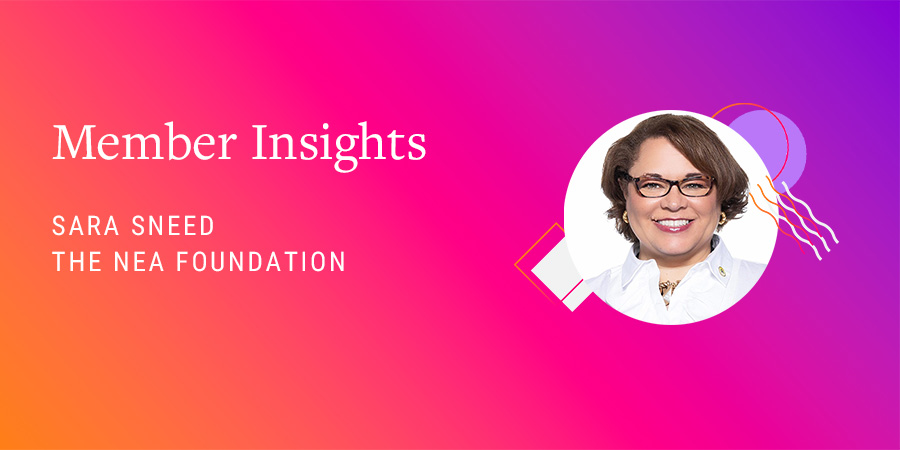Resources
Knowledge begins here
but never ends.
Curated reports, deep research, informational articles, podcasts. Everything you need to stay well
informed in the world of education grantmaking.
Member Insights: Investing in the Deep South

"If you’ve never been on a bus filled with education grantmakers from across the country... let me be the first to tell you: it’s an experience you won’t soon forget." Sara Sneed, president and CEO of The NEA Foundation, shares a journey through history, community and possibility in the Deep South.
What’s It Like to Lead Grantmakers for Education in Tumultuous Times?
Trends in Education Philanthropy: Benchmarking 2025
.
FILTER RESOURCES
SEARCH RESOURCES
Black Faculty Are Vastly Underrepresented at Southern Colleges and Universities
New data shows that the level of Black, Hispanic, and other underrepresented college faculty members is not keeping pace with the changing student demographics in many states.
The data shows that only 9.2 percent of full- and part-time faculty members were Black at public four-year institutions in the 16-state region of the Southern Regional Education Board in 2017-18, the latest year data is available.
In those same public four-year colleges and universities, 17.9 percent of undergraduate students were Black. White faculty members were substantially overrepresented when compared to the undergraduate enrollments of their states. The report also breaks out statistics for the 16 states in the region.
Strengthening the Philanthropic Evaluation Field
Working to Learn: New Research on Connecting Education and Career
Investing in the Power of Young People: 20 Years of Philanthropic Support for Youth Organizing
This report evaluates the critical role philanthropy has played in shoring up a youth organizing field poised to meet the multiple challenges of this moment. This report is part of FCYO’s 2020 National Youth Organizing Field Scan, a series of four reports that together offer an in-depth look into a field that has grown in significant ways over the last two decades.
What to Expect as Gen Z Starts to Parent
How the future will unfold for today’s young children depends on a wide range of factors: climate change, technological developments, economic shifts, among others. But another primary influence will be much closer to home: the values, priorities and expectations of their parents and the choices that they make as a result. This brief explores the Gen Z generation in the United States and how these parents might approach the timeless act of parenting.
Investments in Implicit and Explicit Dimensions of Place-Based Systems Change: A Tool for Funder Reflection and Action
Submit A Resource
Expand your audience by expanding minds.
We believe in getting research and insights into more hands to support learning for our peers and community. Share your resources that would be useful to education grantmakers.





